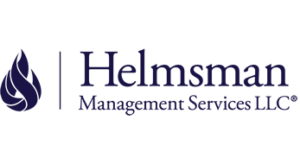
Insurers recognize favorable trends and announce refunds and credits for policyholders
The unprecedented financial disruption caused by the COVID-19 pandemic has prompted insurance regulators and insurers to implement an array of accommodations for adversely impacted policyholders.
Some accommodations were first announced voluntarily by insurers, such as premium refunds for private passenger auto insurance (to reflect reduced miles driven during mandated stay-at-home orders), while subsequent measures were urged, or mandated, by gubernatorial executive orders and/or state insurance department directives and bulletins.
Regulators expand on refunds with requests for cancellation forbearance and free coverage
Because the impact of the pandemic has been uneven across the country, the need for accommodations, and the relief offered or mandated, has varied by state, but the most common measures have been:
- Moratoriums on policy cancellations or nonrenewals for nonpayment of premiums and extended premium payback periods, in some cases as long as 12 months
- Relaxing due dates for premium payments
- Waiving late fees and penalties and mandating premium payment plans, which will avoid a lapse in coverage
- Expanding auto coverage to allow personal vehicles to be covered when delivering food, medicine, or other essential services
Additionally, many insurance departments have urged insurers to make any and all “reasonable accommodations” for adversely impacted individuals and businesses.
Recent directives from regulators expand to include businesses
While most of the above accommodations could apply to personal or commercial insureds, some relief has been targeted to the unique needs of business insurance. Examples include:
- Requiring insurers to post on their websites, or to otherwise inform their commercial policyholders, of their willingness to work on a case-by-case basis to evaluate changes in risk and to provide appropriate accommodations
- Offering flexible billing and premium payment options
- Issuing business owner policy premium refunds or alternatively directing that when policies are audited, a credit be given if there has been a reduction in sales or payroll
- Performing midterm policy audits and providing flexibility regarding completion of audits
- Expanding coverage for vehicles that are currently being used for business purposes which were not being used for business purposes prior to COVID-19
- Reducing coverage for vehicles that were previously being used for business purposes, but are not currently being used for business purposes on account of COVID-19
- Adjusting exposures for general liability to account for factors such as reduced payroll, sales, or receipts
- Adjusting exposures for workers compensation to account for factors such as reduced payroll
- Automatically suspending cancellations based on nonpayment of premium for commercial lines
Many individuals and businesses have sought and received the type of accommodations outlined above since the start of the COVID-19 pandemic, and insurance departments continue to monitor the market closely to determine whether extensions or added measures are needed.
Individuals or businesses in need of first-time or additional relief should consult the website of their respective state insurance department to understand what accommodations are available. Businesses can also contact their third-party administrator (TPA), risk-management consultant, agent-broker, or their insurer directly to explore options for appropriate accommodations.
Featured insights
This website is general in nature and is provided as a courtesy to you. Information is accurate to the best of Helmsman Management Services’ knowledge, but companies and individuals should not rely on it to prevent and mitigate all risks as an explanation of coverage or benefits under a policy or service contract. Consult your professional advisor regarding your particular facts and circumstance. By citing external authorities or linking to other websites, Helmsman Management Services is not endorsing them.





